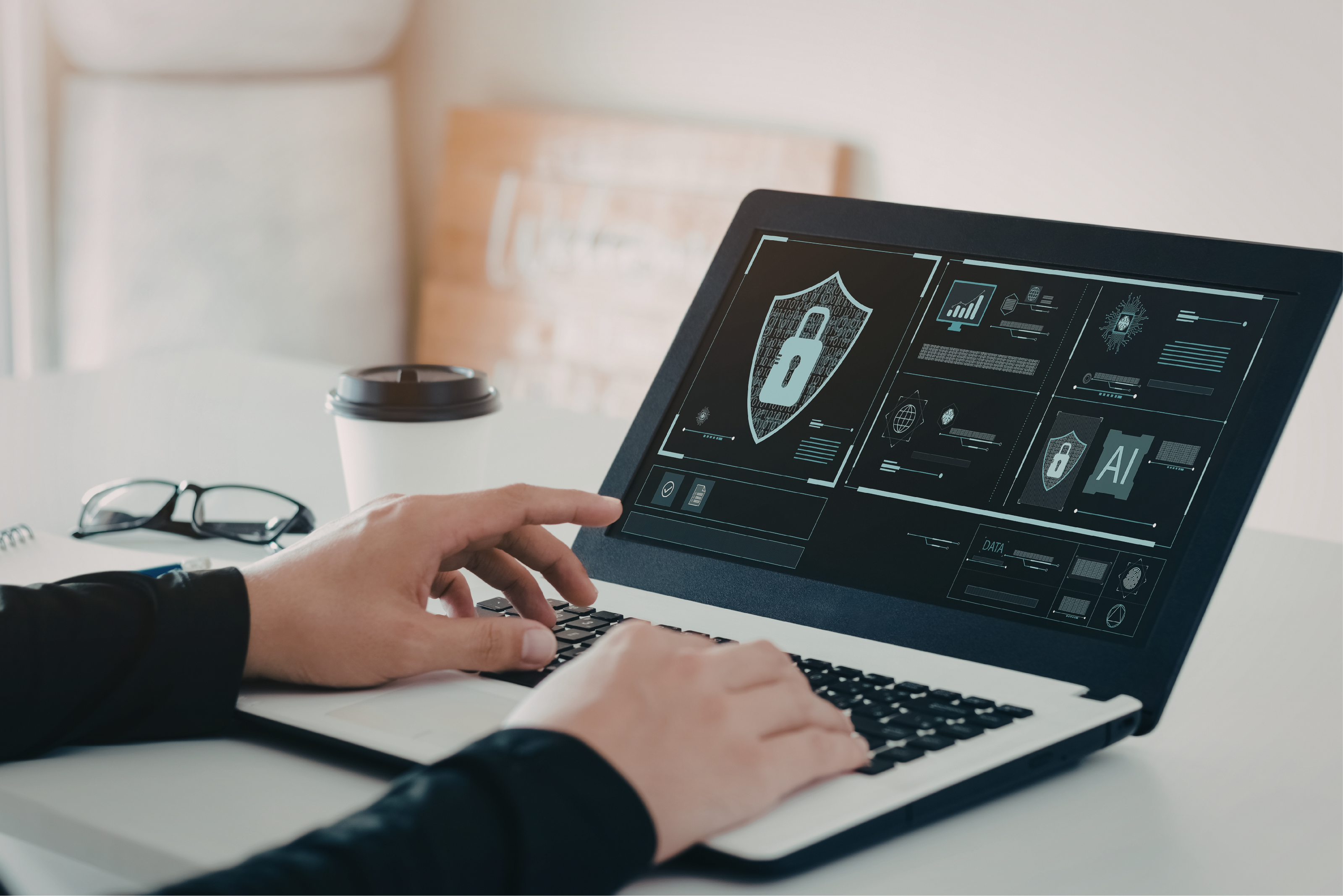Portland Accounting IT Solutions: Benefits of IT Management for CPAs
Proactive IT management is a strategic approach that anticipates and addresses potential issues in IT infrastructure before they escalate into...
5 min read
Nick : Updated on August 11, 2025

Cyberattacks disrupt operations and affect a company's reputation in the long run. That's why it's essential to keep the data secure and prevent unauthorized access. But how?
This is where cybersecurity certifications help.
Cybersecurity certifications show your customers, partners, and investors that your systems adhere to the standards and best practices. It keeps your business aligned with industry regulations.
Many businesses skip certification, thinking it’s too expensive or time-consuming. However, skipping it can result in significant costs through data breaches.
In 2024, the average cost of a data breach hit $4.88 million, according to IBM’s annual report, the highest it’s ever been. Let’s find out the importance of certification, what happens if you skip it, and the common certifications focusing on different security aspects.
Key takeaways
|
A cybersecurity compliance certificate shows that your company follows important security rules.
It shows you meet the standards set by authorities, laws, or regulatory bodies. These standards focus on protecting three key things about your information:
Confidentiality that keeps data private
Integrity to ensure data is accurate and unaltered
Availability to ensure data is accessible when needed
This trio is called the CIA triad, and it is the foundation of good information security.
Your company handles customer contact info, financial details, health records, contracts, and internal communications. If you're not protecting this data, it can easily fall into the wrong hands. In 2024 alone, 422.61 million data records were leaked, as per Statista.
Here are the common data types that are most at risk:
Financial Information is another high-risk category. It includes credit card numbers, CVVs, bank account details, and more. Companies must follow PCI DSS (Payment Card Industry Data Security Standards) to keep it safe
There’s also other sensitive data, like email addresses, biometric data, and even your IP address.
60% of small businesses go out of business within six months of a cyberattack. Here is how skipping cybersecurity certification affects your business:
Without a security framework in place, your defense is likely to be full of holes or out of date. Your business becomes an easy target for ransomware, phishing, and insider threats. The 2023 MOVEit data breach affected over 2,700 organizations and resulted in the leakage of millions of records due to basic security gaps being overlooked.
Customers expect you to protect their data. If you can’t, many will simply walk away.
Cisco Consumer Privacy Survey, 2024 found that 84% of consumers were concerned about data privacy, and 51% have already switched companies because of data concerns.
If you’re not certified or not following the right practices, you could face massive penalties, lawsuits, audits, and blacklisting from certain markets. In 2023, Meta was fined $1.3 billion for violating EU data privacy rules.
Many enterprise clients and government contracts require proof of cybersecurity compliance. You might lose contracts simply because another vendor has the right certification, and you don’t.
Skipping certification could limit your ability to:
Partner with large corporations
Expand into new regions
Win tenders or B2B deals
Your customers, investors, and employees need to trust that their data is secure. Without certification, you can’t give them that assurance.
Breaches, even small ones, are often made public, leading to reduced trust. The share prices of Marks & Spencer dropped by 15 % after the cyberattack in 2025.
And fixing your image after a breach? That costs far more than getting certified.
Getting a cybersecurity compliance certification helps you stay protected, trusted, and ready for future growth. Here are the benefits of getting certified:
In some industries, compliance certification acts as a differentiator. It helps you qualify for better deals and expand into new markets.
Compliance certifications encourage you to adhere to the best security practices. You’ll have security measures like data encryption, access control, and response plans in place. This means your systems are better equipped to deal with cyberattacks.
Certifications show that you have followed the best practices to maintain data security. That way, you avoid fines, lawsuits, or reputational damage. It also improves your brand image and makes you more credible to customers and investors.
By following a certification framework, you reduce the chances of getting hacked. You’ll also recover faster from any incident. And some insurers may even lower your cyber insurance premium.
When customers see your compliance certificate, they know you’ll keep their data secure. This builds trust and gives you an edge over competitors who aren’t certified.
Certification often requires better documentation and standard procedures. This leads to smoother operations and better team coordination.
Each compliance certification targets a specific area based on your data type, industry, and geography.
Here are the most common cybersecurity certifications:
|
Certification |
Focus Area |
|
ISO/IEC 27001 |
Information Security Management System [ISMS] |
|
SOC 2 (System and Organization Control) version 2 |
Trust Service Criteria to manage customer data records |
|
National Institute of Standards and Technology (NIST) |
Risk-based security controls |
|
PCI-DSS (Payment Card Industry Data Security Standard) |
Payment card data protection |
|
General Data Protection Regulation [GDPR] |
Privacy/data protection in the EU |
|
Health Insurance Portability & Accountability Act [HIPAA] |
Healthcare data protection |
|
CCPA (California Consumer Privacy Act) |
Data privacy for California consumers: opt-out and data sale rights |
|
CMMC (Cybersecurity Maturity Model Certification) |
Protecting the Defense Industrial Base (DIB) from cyber attacks |
|
FERPA (Federal Educational Rights and Privacy Act) |
Protection of students' educational records in institutions receiving federal funds from the US Department of Education |
Cybersecurity certification is all about protecting your business and your customers. It gives you the tools you need to protect data.
Compliance certifications require you to adhere to the best practices to secure data, reducing the risks of data breaches and cyberattacks. This helps you build trust, avoid fines, and recover more quickly from breaches.
Continuous monitoring of security threats ensures that you find any malicious activity earlier, ensuring prompt action.
Don’t wait for a breach to take action. Start following the best practices with Heroic Tech now.
How frequently should cybersecurity compliance assessments be performed?
The specific evaluation frequency depends on the type of industry and certification regulations. It is best to assess at least once a year. However, you should also implement real-time monitoring to continuously keep a check and detect gaps before they become a big threat.
What are the steps to get cybersecurity compliance certifications?
Here are the steps you should follow to get the certification:
What are the common malicious software and cyber threats for businesses?
Here's a list of the most common malicious cyber threats you should protect your business from:
How to identify the right set of cybersecurity compliance certifications?
The ideal cybersecurity certification depends on your business, geography, and the data you handle. Hire a cybersecurity expert or use frameworks like the NIST Cybersecurity Framework to know the specific requirements.
Proactive IT management is a strategic approach that anticipates and addresses potential issues in IT infrastructure before they escalate into...

Remember when a simple password felt like enough to guard your digital kingdom? Those days are long gone. Industry research, including Verizon’s Data...

Picture this: It’s 2:00 PM on a Tuesday. You’ve just finished a heavy lunch, and now you’re sitting in a dimly lit conference room, or worse, staring...

Cybersecurity threats are becoming more sophisticated every day, and law firms are increasingly becoming prime targets. Why? Because law firms store...

Technology is transforming the legal field, and with this transformation comes increased risks. For lawyers, protecting sensitive client information...

As 2024 wraps up, it’s crucial for businesses to secure their cybersecurity defenses against the risks that peak during the holiday season. With...